Euro Ramblings – Euros Greatest of All Time by Jade Craddock

 Messi or Ronaldo? Ronaldo or Messi? Forget nature v nurture, leave v remain, Corrie v EastEnders, the most hotly contested question of our day and age comes down to the choice between a footballer from Argentina and one from Portugal (who said that society hasn’t progressed?). And it is a question that can divide opinion even among the most united in all other opinions. Messi devotees will point to his superior assists, his dribbling, his team play and his greater individual awards, whilst Ronaldo supporters will cite his club goals, his success in multiple leagues, his incredible athleticism and a superior international record. And whilst debates over who is better are likely to continue for as long as these two keep going – or one of them retires – Ronaldo has ensured his status as ‘greatest of all time’ in Euros history, with a host of records tumbling in his first outing in Euro 2020. Sorry, Messi, this is one arena in which you can’t compete with Ronaldo, in fact no one can.
Messi or Ronaldo? Ronaldo or Messi? Forget nature v nurture, leave v remain, Corrie v EastEnders, the most hotly contested question of our day and age comes down to the choice between a footballer from Argentina and one from Portugal (who said that society hasn’t progressed?). And it is a question that can divide opinion even among the most united in all other opinions. Messi devotees will point to his superior assists, his dribbling, his team play and his greater individual awards, whilst Ronaldo supporters will cite his club goals, his success in multiple leagues, his incredible athleticism and a superior international record. And whilst debates over who is better are likely to continue for as long as these two keep going – or one of them retires – Ronaldo has ensured his status as ‘greatest of all time’ in Euros history, with a host of records tumbling in his first outing in Euro 2020. Sorry, Messi, this is one arena in which you can’t compete with Ronaldo, in fact no one can.
Most appearances – As Ronaldo led his Portugal side out on Tuesday evening against Hungary, it was his 22nd appearance in the tournament proper. He already held the record, ahead of Bastian Schweinsteiger (18) and Gianluigi Buffon (17), but with a possible further 6 games ahead, Ronaldo could extend his advantage and reach some 28 appearances by the tournament’s end. Whether or not, Portugal qualify from the group, should Ronaldo feature in the two remaining group-stage games, he will also surpass Gianluigi Buffon’s record of 58 appearances, which includes qualifying, with Ronaldo currently sitting on 57.
Most tournaments played – Euro 2020 marks Ronaldo’s fifth – yes, fifth – finals campaign. Whilst a host of players, from Lothar Matthaus to Peter Schmeichel to Olof Mellberg, have racked up an impressive four campaigns, Ronaldo is the only man in history to achieve a breathtaking five campaigns, spanning some sixteen years, with his first appearance in Portugal 2004 aged 19. Now 36, Ronaldo will have to wait another three years until the next Euros in Germany 2024, which may be a bit of a stretch for a then 39-year-old Ronaldo, but I wouldn’t entirely count against it – after all, he hasn’t yet got the oldest player records.
First player to score at five consecutive Euros – When Ronaldo stepped up to slot home a penalty in the 87th minute in the match against Hungary, he became the first player to score at five consecutive Euros. No other player has scored at more than three consecutive Euros, with Wayne Rooney and Thierry Henry amongst those holding that honour, whilst a host of players, including Dennis Bergkamp and Roman Pavlyuchenko, have scored at two. Having first scored against Greece in Euro 2004, Ronaldo also charted the longest gap between first and last Euros goals of some 17 years, which he may extend if he adds any more to his name this tournament.
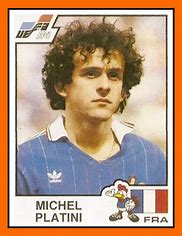 All-time top scorer at the Euros – I must admit to some surprise that the goalscoring record for the Euros previously stood at 9, held by Michel Platini. Ronaldo obviously shared my surprise and sought to boost that number to a healthier total by bagging a brace, and in doing so catapulting himself to the top of another chart and putting some daylight between himself and his competitors. Now on 11 goals, you wouldn’t bet against that number rising, though Portugal perhaps don’t have the easiest of matches coming up to get out of the group. And despite scoring 11 goals, Ronaldo has only netted against five different opponents (Greece, Netherlands, Czech Republic, Hungary and Wales), so he’ll have to break that if he’s to improve his tally against France and Germany. Incidentally, in terms of most goals including qualifying, no guesses for who claims that record – Ronaldo holds some 27-goal advantage over his nearest rival, Zlatan Ibrahimovic, so I suspect this one may stand the test of time, as perhaps will his record as Portugal’s top goalscorer, where he sits almost 60 goals ahead of Pauleta (and some 40 caps ahead of Joao Moutinho).
All-time top scorer at the Euros – I must admit to some surprise that the goalscoring record for the Euros previously stood at 9, held by Michel Platini. Ronaldo obviously shared my surprise and sought to boost that number to a healthier total by bagging a brace, and in doing so catapulting himself to the top of another chart and putting some daylight between himself and his competitors. Now on 11 goals, you wouldn’t bet against that number rising, though Portugal perhaps don’t have the easiest of matches coming up to get out of the group. And despite scoring 11 goals, Ronaldo has only netted against five different opponents (Greece, Netherlands, Czech Republic, Hungary and Wales), so he’ll have to break that if he’s to improve his tally against France and Germany. Incidentally, in terms of most goals including qualifying, no guesses for who claims that record – Ronaldo holds some 27-goal advantage over his nearest rival, Zlatan Ibrahimovic, so I suspect this one may stand the test of time, as perhaps will his record as Portugal’s top goalscorer, where he sits almost 60 goals ahead of Pauleta (and some 40 caps ahead of Joao Moutinho).
Most tournaments with at least one goal/most tournaments with at least two goals – Whilst Ronaldo’s first goal secured him the record of being the player to score at least one goal in the most tournaments (5), his second goal added the complimentary record of scoring two goals at the most tournaments (4). Ronaldo also holds the record for scoring at least three goals at most tournaments (2), and another goal at Euro 2020 would cement that record still further.
Most minutes played – Going into the tournament, Ronaldo sat top of minutes played, ahead of Gianluigi Buffon, who notched 1620 minutes in Euros final campaigns. Another 90 minutes for the Portuguese talisman saw his figures jump to some 1880 plus minutes, which equates to over 31 hours’ playing time! Ronaldo could rack up a possible further 540 minutes should Portugal go all the way, which would take his tally over 2400 minutes – or 40 hours! I feel like taking a rest just contemplating that figure.
Most victories by a player at the Euros – With 83 minutes on the clock, Andreas Iniesta and Cesc Fabregas may have been thinking their record for most victories in the Euros was intact, but whilst Raphael Guerreiro rocked the boat as he put Portugal ahead, Ronaldo’s brace well and truly sank it. All three players had notched up some 11 victories in their Euros careers, but Ronaldo once more took the record outright after the 3-0 triumph over Hungary. Again, matches against France and Germany may not make this an easy record to progress for Ronaldo, but he won’t be resting on his laurels.
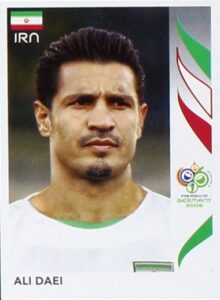 With at least two games in which Ronaldo will most likely feature, it’s possible for the records to keep on tumbling, and one that’s been in everyone’s sights (including surely Ronaldo’s) in recent years has been Ali Daei’s international goalscoring record of 109 goals. Now sitting on 106, Ronaldo could feasibly add this to his record haul, but, again, given the games that lie ahead, it won’t be easy – but then scoring 106 goals isn’t easy in itself and if there is one man/machine that can do it, it’s surely Europe’s G.O.A.T. Ronaldo also currently sits two behind Karel Poborsky on most assists in the Euros with 6 and one behind Zidane et al for most penalties scored – a hugely feasible 2, whilst Ronaldo would need to feature in every game through to the semi-finals to surpass Sergio Ramos as the most capped European international. Whilst there’s not much you’d put past this superhuman, Jude Bellingham and Johan Vonlanthen can breathe a sigh of relief that their youngest player records are secure and Michel Platini’s record of 9 goals in a single tournament will need a gargantuan effort even from Ronaldo. But if Ronaldo wants to add another record to his haul, how about fastest goal? I’ll be setting my stopwatch for 66 seconds when Portugal take on Germany on Saturday and I wouldn’t bet against him. Who knows, maybe even Messi will be watching on to see what other records his rival sets.
With at least two games in which Ronaldo will most likely feature, it’s possible for the records to keep on tumbling, and one that’s been in everyone’s sights (including surely Ronaldo’s) in recent years has been Ali Daei’s international goalscoring record of 109 goals. Now sitting on 106, Ronaldo could feasibly add this to his record haul, but, again, given the games that lie ahead, it won’t be easy – but then scoring 106 goals isn’t easy in itself and if there is one man/machine that can do it, it’s surely Europe’s G.O.A.T. Ronaldo also currently sits two behind Karel Poborsky on most assists in the Euros with 6 and one behind Zidane et al for most penalties scored – a hugely feasible 2, whilst Ronaldo would need to feature in every game through to the semi-finals to surpass Sergio Ramos as the most capped European international. Whilst there’s not much you’d put past this superhuman, Jude Bellingham and Johan Vonlanthen can breathe a sigh of relief that their youngest player records are secure and Michel Platini’s record of 9 goals in a single tournament will need a gargantuan effort even from Ronaldo. But if Ronaldo wants to add another record to his haul, how about fastest goal? I’ll be setting my stopwatch for 66 seconds when Portugal take on Germany on Saturday and I wouldn’t bet against him. Who knows, maybe even Messi will be watching on to see what other records his rival sets.
 Group D: Scotland (0) 0 – 2 (1) Czech Republic
Group D: Scotland (0) 0 – 2 (1) Czech Republic Group E: Poland (0) 1 – 2 (1) Slovakia
Group E: Poland (0) 1 – 2 (1) Slovakia Group E: Spain (0) 0 – 0 (0) Sweden
Group E: Spain (0) 0 – 0 (0) Sweden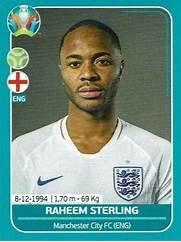 Group D: England (0) 1 – 0 (0) Croatia
Group D: England (0) 1 – 0 (0) Croatia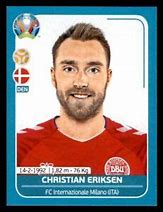 Eriksen impact: Firstly, having witnessed the horrific events in the Denmark v Finland game the previous day, I imagine twenty-four hours on, the football world’s thoughts were very much on Christian Eriksen and his recovery. The immediate and continued reaction showed once more the incredible and special unity possible in football. Regardless of nationality, club allegiance, interest, at moments like this, football unites in worry, hope and mostly support and it’s a poignant and powerful thing. Naturally, whilst the Danish and Finnish players were obviously those most closely affected, every team has players who will have crossed paths to varying degrees with Eriksen – past teammates, like Harry Kane and Jan Vertonghen, current teammates like Romelu Lukaku and Ivan Perisic, and myriad opposition players – and even for those who haven’t, I can’t imagine there was any player, fan or human being not affected. And even as the tournament continues, for the players involved what happened will surely play on their minds. Fortunately, a rapid and experienced medical response and the noble reaction of teammates, opposition and officials had a huge impact, but it also perhaps served as a reminder of the importance of first aid and emergency support at all levels of the game. Christian Eriksen will remain at the forefront of the thoughts and best wishes of everyone and although there is still a tournament being played, Eriksen’s recovery is the greatest victory that there can be.
Eriksen impact: Firstly, having witnessed the horrific events in the Denmark v Finland game the previous day, I imagine twenty-four hours on, the football world’s thoughts were very much on Christian Eriksen and his recovery. The immediate and continued reaction showed once more the incredible and special unity possible in football. Regardless of nationality, club allegiance, interest, at moments like this, football unites in worry, hope and mostly support and it’s a poignant and powerful thing. Naturally, whilst the Danish and Finnish players were obviously those most closely affected, every team has players who will have crossed paths to varying degrees with Eriksen – past teammates, like Harry Kane and Jan Vertonghen, current teammates like Romelu Lukaku and Ivan Perisic, and myriad opposition players – and even for those who haven’t, I can’t imagine there was any player, fan or human being not affected. And even as the tournament continues, for the players involved what happened will surely play on their minds. Fortunately, a rapid and experienced medical response and the noble reaction of teammates, opposition and officials had a huge impact, but it also perhaps served as a reminder of the importance of first aid and emergency support at all levels of the game. Christian Eriksen will remain at the forefront of the thoughts and best wishes of everyone and although there is still a tournament being played, Eriksen’s recovery is the greatest victory that there can be.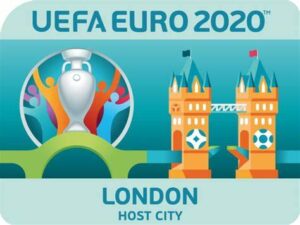 Home advantage?: As part of its 60th anniversary celebrations, UEFA opted to move away from its traditional approach of a single or two countries hosting the event to a fully pan-European tournament, which is a nice idea in principle, but in reality isn’t perhaps the most sensible, not least in these COVID times, but there we have it. Sadly, I’m not party to UEFA’s machinations so am unsure as to why it was 11 cities that were chosen, but each of the qualifying host nations are granted the opportunity to play at least two groups matches at home, whilst six nations, including Italy, Denmark, Netherlands, Spain, Germany and, crucially, England will play all three group games at home venues. Contrast this to Belgium who are flitting between St Petersburg and Copenhagen and Wales who find themselves manoeuvred between Azerbaijan and Rome, and you have to feel that there is a home advantage for England. More so than any other tournament, when teams would be based in a country and travel would be limited within that nation, or nations, travel and moving camps has to be more of a factor than ever. The group stages and knockout rounds will see the competition similarly spread across various destinations, but notably with the semi-finals and finals scheduled for Wembley, there is a real incentive and motivation for England to thrive. However, given that home nations have only won the Euros three times, perhaps we should give one of the other nations the title of home nation.
Home advantage?: As part of its 60th anniversary celebrations, UEFA opted to move away from its traditional approach of a single or two countries hosting the event to a fully pan-European tournament, which is a nice idea in principle, but in reality isn’t perhaps the most sensible, not least in these COVID times, but there we have it. Sadly, I’m not party to UEFA’s machinations so am unsure as to why it was 11 cities that were chosen, but each of the qualifying host nations are granted the opportunity to play at least two groups matches at home, whilst six nations, including Italy, Denmark, Netherlands, Spain, Germany and, crucially, England will play all three group games at home venues. Contrast this to Belgium who are flitting between St Petersburg and Copenhagen and Wales who find themselves manoeuvred between Azerbaijan and Rome, and you have to feel that there is a home advantage for England. More so than any other tournament, when teams would be based in a country and travel would be limited within that nation, or nations, travel and moving camps has to be more of a factor than ever. The group stages and knockout rounds will see the competition similarly spread across various destinations, but notably with the semi-finals and finals scheduled for Wembley, there is a real incentive and motivation for England to thrive. However, given that home nations have only won the Euros three times, perhaps we should give one of the other nations the title of home nation. Kalvin Phillips: There was much talk going into the tournament around attacking players – Should Sancho be included? Would Grealish be fit? How on earth can we fit in all of these attacking options? – and then when the squad announcement was made attention turned to Harry Maguire and the four right-backs, whilst one man went largely under the radar – Kalvin Phillips. After an excellent couple of seasons with Leeds, Phillips got a much-deserved first England call-up in August last year and hasn’t looked back. Indeed, perhaps most notably, there was never any question of him making Gareth Southgate’s final 26 – his name never came up for discussion. But as the tournament neared and a lot of focus turned to Jordan Henderson’s fitness and possible return, the question of midfield partnerships suddenly arose. Phillips found himself named alongside Rice, but with Jordan Henderson continuing to build towards his return, the spotlight was on, and Phillips didn’t disappoint, putting in a superb performance, both breaking up play and pushing forward, crucially for England’s goal. He took his chance with both hands and surely deserves his spot against Scotland. Tyrone Mings who was similarly under the microscope in what has been deemed a problem area for England with the injury to Harry Maguire put in a solid performance, whilst Foden was, as ever, a shining light. Had Euro 2020 not been delayed, Phillips and Foden, neither of whom made their debuts until August 2020, and Mings, who was still breaking through, may not have featured. What a difference twelve months makes!
Kalvin Phillips: There was much talk going into the tournament around attacking players – Should Sancho be included? Would Grealish be fit? How on earth can we fit in all of these attacking options? – and then when the squad announcement was made attention turned to Harry Maguire and the four right-backs, whilst one man went largely under the radar – Kalvin Phillips. After an excellent couple of seasons with Leeds, Phillips got a much-deserved first England call-up in August last year and hasn’t looked back. Indeed, perhaps most notably, there was never any question of him making Gareth Southgate’s final 26 – his name never came up for discussion. But as the tournament neared and a lot of focus turned to Jordan Henderson’s fitness and possible return, the question of midfield partnerships suddenly arose. Phillips found himself named alongside Rice, but with Jordan Henderson continuing to build towards his return, the spotlight was on, and Phillips didn’t disappoint, putting in a superb performance, both breaking up play and pushing forward, crucially for England’s goal. He took his chance with both hands and surely deserves his spot against Scotland. Tyrone Mings who was similarly under the microscope in what has been deemed a problem area for England with the injury to Harry Maguire put in a solid performance, whilst Foden was, as ever, a shining light. Had Euro 2020 not been delayed, Phillips and Foden, neither of whom made their debuts until August 2020, and Mings, who was still breaking through, may not have featured. What a difference twelve months makes! Hey, Jude: Can you remember what you were doing at 17? Learning to drive, perhaps; maybe taking exams, or even something a little less virtuous. Whatever it was, it wouldn’t have been representing your country in the Euros. In fact, only one person in history can claim that achievement in the men’s Euros – Jude Bellingham. When he was brought on as a sub against Croatia, at the age of 17 years and 349 days, Bellingham broke the previous record held by Jetro Willems of the Netherlands, who was 18 years and 71 days when he featured in Euro 2012. Bellingham is also some 23 years younger than the oldest ever player at the Euros – Gabor Kiraly of Hungary, who was 40 years and 86 days – and 22 years younger than the oldest ever outfield player – Germany’s Lothar Matthaus, who was 39 years and 91 days. The teenager joins an illustrious group of players who hold the honour of being the youngest players for their nations at the Euros, including Ivan Rakitic (Croatia), Tomas Rosicky (Czech Republic), Michael Laudrup (Denmark), Lukas Podolski (Germany) and Paolo Mancini (Italy) to name a few. In terms of the youngest goalscorer at the Euros, Johan Vonlanthen of Switzerland currently holds that title, aged 18 years and 141 days, so Bellingham could feasibly take that one too. Oh, and one other record of note, the youngest player to feature in a Euros final was Renato Sanches of Portugal, aged 18 years and 327 days. Jude Bellingham only turns 18 twelve days before the final, just saying…
Hey, Jude: Can you remember what you were doing at 17? Learning to drive, perhaps; maybe taking exams, or even something a little less virtuous. Whatever it was, it wouldn’t have been representing your country in the Euros. In fact, only one person in history can claim that achievement in the men’s Euros – Jude Bellingham. When he was brought on as a sub against Croatia, at the age of 17 years and 349 days, Bellingham broke the previous record held by Jetro Willems of the Netherlands, who was 18 years and 71 days when he featured in Euro 2012. Bellingham is also some 23 years younger than the oldest ever player at the Euros – Gabor Kiraly of Hungary, who was 40 years and 86 days – and 22 years younger than the oldest ever outfield player – Germany’s Lothar Matthaus, who was 39 years and 91 days. The teenager joins an illustrious group of players who hold the honour of being the youngest players for their nations at the Euros, including Ivan Rakitic (Croatia), Tomas Rosicky (Czech Republic), Michael Laudrup (Denmark), Lukas Podolski (Germany) and Paolo Mancini (Italy) to name a few. In terms of the youngest goalscorer at the Euros, Johan Vonlanthen of Switzerland currently holds that title, aged 18 years and 141 days, so Bellingham could feasibly take that one too. Oh, and one other record of note, the youngest player to feature in a Euros final was Renato Sanches of Portugal, aged 18 years and 327 days. Jude Bellingham only turns 18 twelve days before the final, just saying… Tough test: England’s 1-0 victory over Croatia ensured England’s best ever start to a Euros; indeed, they had never won their first game at the tournament before. Whilst there were a lot of positives to take from the match, there is, naturally, room for improvement. It is difficult to be at your best in the first game, nor, quite honestly, would you want to be, hoping to build into the competition, so a victory and three points was the most important thing, and against a Croatia side who have been known to cause the odd England upset, it was a solid enough start, but the next game against Scotland may be an even bigger challenge. It is, after all, the oldest rivalry in football, dating back to 1872, and has seen some 113 matches, of which England hold a slight advantage, including in recent years, although the most recent result was a 2-2 draw. Whilst England’s biggest victory was 9-3 in 1961 and Scotland’s 7-2 in 1878, which would make for entertaining affairs, I suspect it will be a much-closer and harder-fought contest when the two sides meet on Friday. England will be looking to build momentum, whilst Scotland will be wanting to make the most of their first major tournament in 23 years. With the likes of Andy Robertson, Scott McTominay and John McGinn, Scotland will be familiar but formidable opponents and surely buoyed by a match against England. The Three Lions will face a tough test and will certainly need to raise their game to keep their 100% start in the tournament.
Tough test: England’s 1-0 victory over Croatia ensured England’s best ever start to a Euros; indeed, they had never won their first game at the tournament before. Whilst there were a lot of positives to take from the match, there is, naturally, room for improvement. It is difficult to be at your best in the first game, nor, quite honestly, would you want to be, hoping to build into the competition, so a victory and three points was the most important thing, and against a Croatia side who have been known to cause the odd England upset, it was a solid enough start, but the next game against Scotland may be an even bigger challenge. It is, after all, the oldest rivalry in football, dating back to 1872, and has seen some 113 matches, of which England hold a slight advantage, including in recent years, although the most recent result was a 2-2 draw. Whilst England’s biggest victory was 9-3 in 1961 and Scotland’s 7-2 in 1878, which would make for entertaining affairs, I suspect it will be a much-closer and harder-fought contest when the two sides meet on Friday. England will be looking to build momentum, whilst Scotland will be wanting to make the most of their first major tournament in 23 years. With the likes of Andy Robertson, Scott McTominay and John McGinn, Scotland will be familiar but formidable opponents and surely buoyed by a match against England. The Three Lions will face a tough test and will certainly need to raise their game to keep their 100% start in the tournament. Group A: Wales (0) 1 – 1 (0) Switzerland
Group A: Wales (0) 1 – 1 (0) Switzerland Italy and Turkey get the delayed Euro 2020 tournament underway at the Stadio Olimpico in Rome tonight. The Italians topped their Group in qualifying with a 100% record having beaten Finland, Greece, Bosnia and Herzegovina, Armenia and Liechtenstein both home and away. The Azzuri scored 37 goals and conceded just 4 as they romped home twelve points clear of second-placed Finland. Turkey came through as runners-up in their qualifying campaign, finishing just two points behind France, in a Group that also contained Iceland, Albania, Andorra and Moldova. The Crescent Stars beat France in the Group stages but lost out on top-stop after only picking up a point in their two meetings with Iceland.
Italy and Turkey get the delayed Euro 2020 tournament underway at the Stadio Olimpico in Rome tonight. The Italians topped their Group in qualifying with a 100% record having beaten Finland, Greece, Bosnia and Herzegovina, Armenia and Liechtenstein both home and away. The Azzuri scored 37 goals and conceded just 4 as they romped home twelve points clear of second-placed Finland. Turkey came through as runners-up in their qualifying campaign, finishing just two points behind France, in a Group that also contained Iceland, Albania, Andorra and Moldova. The Crescent Stars beat France in the Group stages but lost out on top-stop after only picking up a point in their two meetings with Iceland. Dele Alli
Dele Alli
 Conor Coady
Conor Coady Mason Mount
Mason Mount Tyrone Mings
Tyrone Mings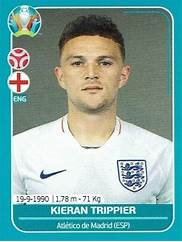 Kieran Trippier
Kieran Trippier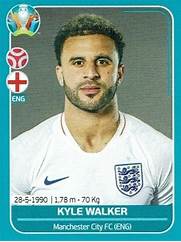 Kyle Walker
Kyle Walker